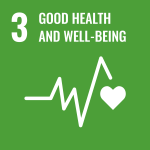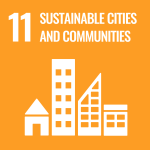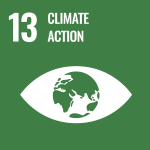UGED2859 Nature in Philosophy and Arts
Time
Lecture: Wednesdays 04:30 p.m. – 06:15 p.m.
Instructor
Professor Hayden Sean Alexander KEE
Course Description
Environmental issues are most often approached through the STEM disciplines and social sciences. However, the humanities have the potential to help us understand and transform how we view and relate to the natural world. This course explores environmental issues from an interdisciplinary perspective integrating philosophy and the arts.
The first part of the course addresses central issues in environmental philosophy and ethics. We will examine (a) the concepts of nature and environment; (b) the relationship between the human being and its environment, between culture and nature; and (c) the Anthropocene, the geological epoch in which human activity is the primary factor shaping environmental change. We then turn to environmental ethics, asking what moral responsibilities we have to non-human living beings and ecosystems. We conclude the first part of the course with a discussion of the aesthetic value of nature. In the second part of the course, we will examine the role of the arts (especially literature, visual art, and film) in shaping our relationship with the natural world and motivating climate action. We will apply concepts from environmental philosophy and humanities to develop a deeper appreciation and critical understanding of environmental artworks, with a focus on work from Hong Kong artists. Throughout the course, experiential learning activities will give students the chance to see how transforming our understanding and relationship with nature can improve our overall well-being.
This course bears on several of the United Nations’ Sustainable Development Goals (SDGs). We will see how work in the humanities and arts can motivate climate action (SDG#13 Climate Action). By reimagining our relationship with the environment and the connections between nature and culture, we can envision more sustainable ways of life in a heavily urbanized space like Hong Kong (SDG#11 Sustainable Cities and Communities). And by transforming our attitude towards and relationship with nature, we enjoy the mental health benefits of a deepened appreciation of and connection with nature (SDG#3 Good Health and Well-Being).
Learning Outcome
Upon completion of this course, students will be able to
- analyse the major arguments in current environmental philosophy, ethics, and aesthetics, and understand the strengths and weaknesses of each;
- understand how the humanities and arts shape our intellectual, evaluative, and emotional relationship to the environment;
- articulate and critically reflect upon one’s own attitudes towards the environment;
- apply theoretical concepts in environmental humanities to interpret works of literature, film, and visual art, and critically evaluate their relevance for contemporary environmental issues;
- synthesize ideas from a range of humanities disciplines to develop a composite, interdisciplinary perspective on complex contemporary environmental issues.






